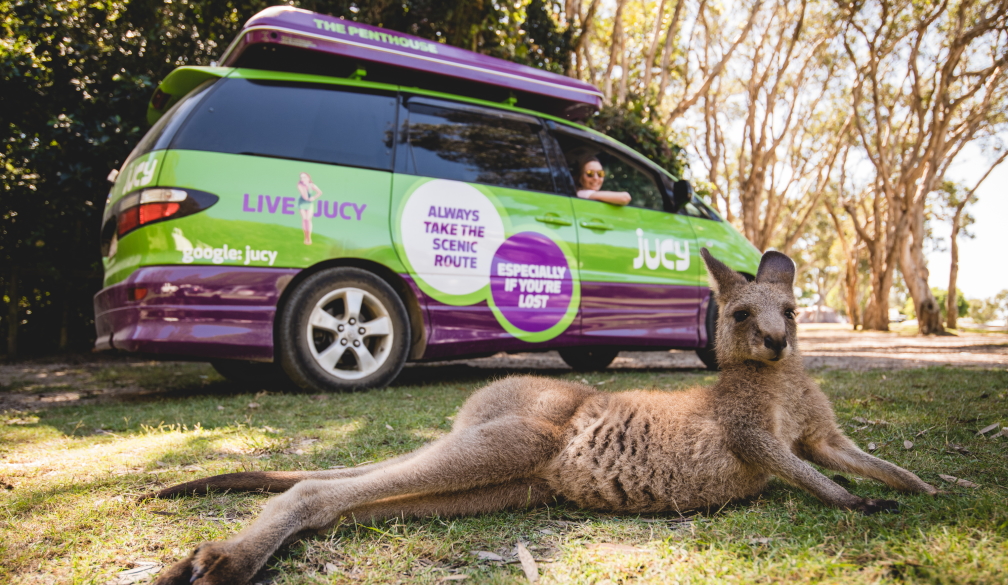Investment by Jucy Set to Reduce Australia’s Rental Vehicle Shortage

Multi-Million Dollar Investment
A multi-million dollar investment in Australia’s international tourism infrastructure is expected to ease a critical shortage of rental vehicles.
Jucy, one of Australasia’s largest vehicle rental operators, will invest $40 million dollars to expand the company's fleet of campervans and cars and open new locations around the country.
The investment is expected to support the expansion of Jucy’s ANZ operations - providing around 1,000 new vehicles and opening new locations around Australia.
A significant proportion of Australia’s rental fleet was depleted as a result of the pandemic, with thousands of vehicles sold by operators to cover overhead expenses.
Latest Government data shows monthly overseas visitor numbers in June have grown by 618% over the previous year.[1]
With borders now reopened and an influx of international tourists set to arrive for the coming summer, global vehicle shortages and shipping delays have impacted the industry’s ability to rapidly rebuild vehicle stocks.
The passenger vehicle market, which includes rental cars, has fallen by 9% when compared to the same month last year - with supply of vehicles to the Australian market not expected to stabilise in the short term.[2]
Dan Alpe, CEO of Jucy, says the increased fleet capacity will provide a platform for the company’s trans-Tasman expansion as the industry moves forward from COVID.
He says their latest funding has been sourced through Sydney private equity firm Next Capital, who will take a majority position in Jucy - allowing the company to accelerate their growth programme across both markets.
“What we can see from our forward bookings is that the Australian tourism market is responding much faster than expected and we are now looking at accelerating our growth strategy to meet the growing demand in the self-drive visitor segment.
“Our data shows the upcoming summer peak of inbound international tourists will start noticeably earlier than normal and we are well on the way to seeing numbers return to pre-pandemic levels.
“This rebound in tourism numbers is being driven by thousands of visitors from the European market which means the Australian market will likely face a supply shortfall in excess of what we have seen previously.
“At the current rate, we are forecasting a full recovery to pre-COVID levels by November 2023.
“Next Capital is a leading mid-market private equity firm with significant experience in tourism and transport operators, and our new strategic partnership is designed to support our continued growth across both Australia and New Zealand.
“With the support of Next, Jucy will be able to expand more rapidly within the Australasian market as it enters a period of high demand,” he says.
Alpe says they have used the last couple of years to restructure the business, introducing new technologies to reduce the number of manually intensive tasks and drive greater efficiency.
He says in comparison to others in the industry, Jucy’s fleet of campervans has remained relatively intact, however it is well below the levels required to meet projected demand.
“Our stock of campers is over 80% what it was going into the pandemic, and this has put us in a positive position to service a large share of the tourist market planning to visit Australia over the coming year.
“In addition to the revenue they provide, it is critical that the transport and accommodation infrastructure is there to support tourists on a working holiday visa - which provide essential labour to other sectors of the economy,” he says.
Alpe says the $40 million investment will be primarily used to purchase, fitout and deploy 1,000 new campervans across Australia and New Zealand.
He says the company will also look to expand the number of locations it operates from in Australia.
“We have already begun sending shipments of interiors to the Australian market where they will be installed in converted vans.
“The first of the new vehicles we have earmarked for this market will be on Australia roads within the next three-four months, in time for the summer season but well short of what will be needed to meet demand,” he says.
[1] Australian Bureau of Statistics. June 2022 provisional overseas arrival numbers compared to June 2021. Available here.
[2] Federal Chamber of Automotive Industries. July 2021 vs July 2022. Available here.







